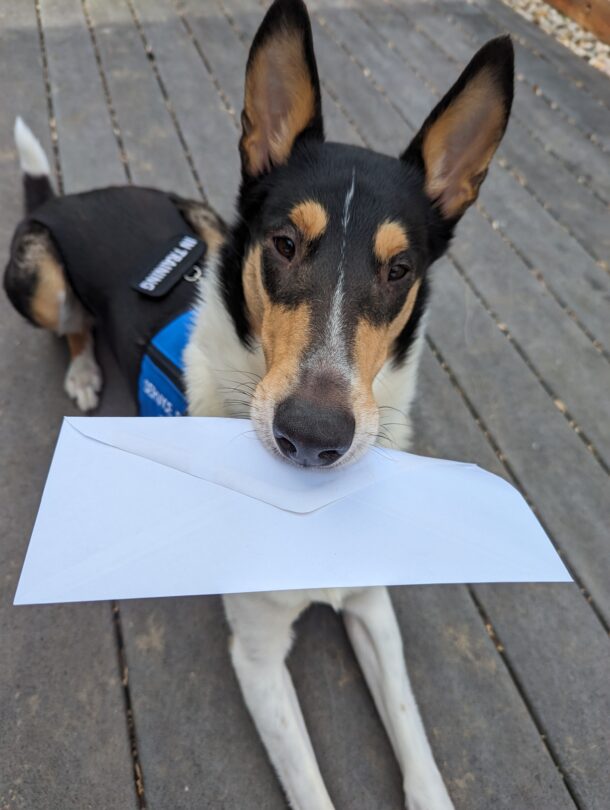Will I be able to certify a service dog?
That is one of the most common questions I receive from pet dog trainers interested in learning how to train service dogs. The surprising answer: there is no government provision for certification of service dogs in the United States.
The Department of Justice (DOJ) states:
“Q17. Does the ADA require that service animals be certified as service animals?
A. No. Covered entities may not require documentation, such as proof that the animal has been certified, trained, or licensed as a service animal, as a condition for entry.”
Certification of service dogs by service dog programs in the United States reflects the standards, training and quality of the program or person who certified the dog. The service dog industry is like the pet dog training industry, it is largely unregulated so there are wonderful service dog programs and terrible ones. Certification may also just be a certificate that the person purchased online. The DOJ has something to say about that too:
“There are individuals and organizations that sell service animal certification or registration documents online. These documents do not convey any rights under the ADA and the Department of Justice does not recognize them as proof that the dog is a service animal.”
So referring to service dogs as “certified” in reality is a bit like saying someone has a certification in dog training. We need to know more about the certification, it may mean a lot or nothing at all.
An understanding of the history of service dogs, and also of industry organizations is helpful in understanding why, in spite of the fact that certification has not ever been legally required in the United States, people keep asking about it.
Service Dog “Certification” History
References to service dog certification comes from the service dog program world. Service dog programs usually trained the dog from puppy to adult, they then placed the dog with a person with a disability.
“Certification” for service work typically used to refer to a service dog from an Assistance Dogs International (ADI) accredited member program who completed ADI’s public access test successfully with his/her new partner. Because ADI member programs “certify” the service dogs that go through their programs, people mistakenly assumed this was legally required. ADI is an organization of non-profit service dog programs. ADI is not a United States government agency.
Facts:
- Only non-profit service dog programs are eligible to join ADI. For profit businesses are not eligible to join ADI.
- Membership in ADI is voluntary. Not all non-profit service dog programs are members of ADI.
- ADI programs vary in the training methods they use, some use positive, reward-based training, some do not.
Public Access Testing
Programs that train and place service dogs with people with disabilities often conduct a public access test (PAT) when they place the dog with the recipient. This is to assess how the team works in different settings. There are many different public access tests. A well-known PAT was created by ADI for member programs to use with their teams. ADI used to have their PAT on the public section of their website, however in spring 2017 they removed it. You can see another organization’s PAT on the Psychiatric Service Dog Partners website.
People Training Their Own Dogs for Service Work
Statistics do not exist, but based on my experience I believe that owner-trained service dogs vastly outnumber service dogs trained by programs.
The Department of Justice States:
“Q5. Does the ADA require service animals to be professionally trained?
A. No. People with disabilities have the right to train the dog themselves and are not required to use a professional service dog training program.”
Fortunately, many people recognize the reality that service dog training is an advanced skill and they look for support from professional pet dog trainers experienced and knowledgeable in service dog training.
Pet dog trainers supporting owner-trainers, people with disabilities training their own dogs for service work are in a different role and relationship with the team than a service dog program. The person with the disability is typically the owner of the dog from the start. However, just because assessment is not legally required, does not mean it is not important. Assessment is still important to ensure the dog is trained adequately and appropriately. There are many ways that the training process, including public access work and task training can be effectively evaluated and documented. Checklists, journals, videos of training, forms, training notes, even email communication can be used to document the dog’s training in a way that is meaningful.

